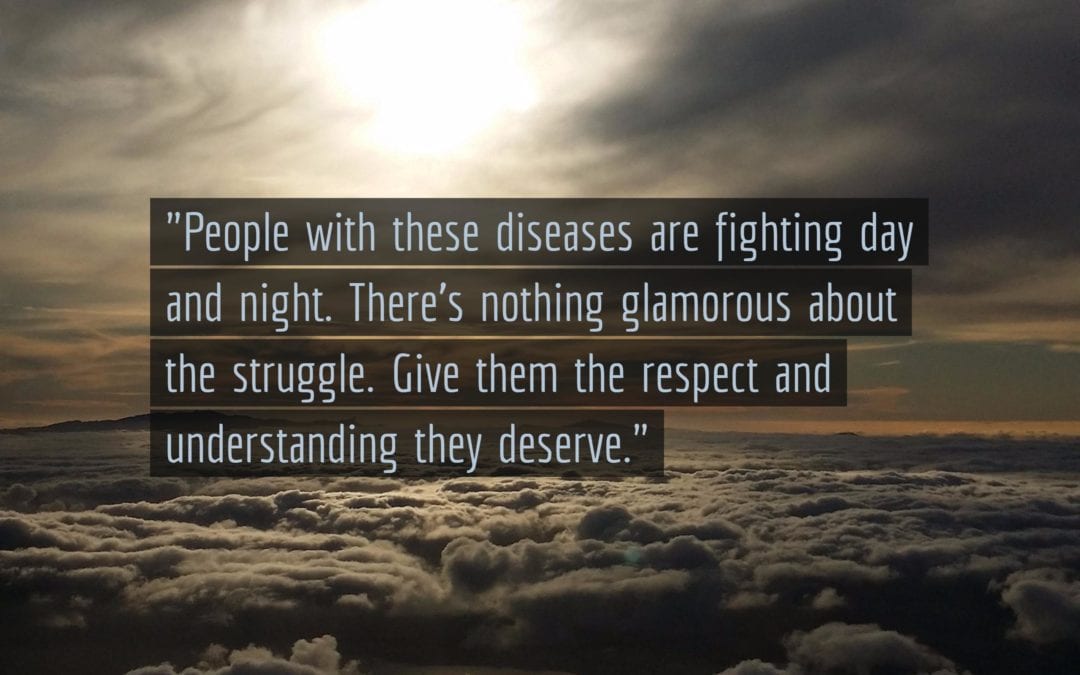We have seen a lot of movies that put the spotlight on mental illness. Movies like “Girl, Interrupted,” “Prozac Nation,” “Rain Man” and very recently, “Silver Linings Playbook” and “Infinite Polar Bear,” to name a few. These movies portray what it is like to have mental illness.
Lately, the important issue of mental illness has made it to the small screen, too. “Orange is the New Black,” “You’re the Worst” and “Lady Dynamite,” to name a few, are shows dealing with schizophrenia, clinical depression, dysthymia, and bipolar disorder quite perfectly.
But there’s also a flawed side to this. The problem is that people, mostly youngsters, have taken to the idea of mental illness being something cool. They want to have some kind of mental disorder because the mysterious, brooding guy in class or the complex, reclusive girl next door is a lot more interesting than ordinariness.
Mental illnesses have become something attractive to people. They have come to romanticize the concept of having a mental disorder, despite the fact that in reality it is NOT fascinating. There’s nothing romantic about mental illnesses.
Reality is a lot, lot worse than it is depicted in works of fiction. In reality, having a mental disorder is absolutely terrifying.
I have felt paralyzed, lying on my bed, listening to my heart beat, incapable of even moving my limbs as if my body wasn’t part of me anymore. I have felt like a powerless captive of my own brain. I felt so guilty for existing that all I wanted to do was give up. I have been sad and cried for hours for no apparent reason. Exhausted, and completely detached from the living, I wanted to end it all.
Because that’s what depression does to you.
I have felt so inspired that I absolutely had to start that impractical project I knew I’ll never finish. My mind palace is fueled by a zillion ideas, I have used up all my words talking about it. I have felt like I was crawling out of my own skin. My decision making skills have ceased to function. Illogical and empty, I have spent too much, bought things that I’ll never need. I have felt hopeless, agitated and anxious when my plans ended up dead. I have felt angry and deceived by my own self; hurting my own body.
That’s what a particularly manic episode does to you.
I have bipolar disorder, anxiety and PTSD. Welcome to my world.
This is life for me, each day as painful and confusing as the day before. Dwindling between two steps: up and down. Taking six antipsychotics every day to keep myself “normal.”
This isn’t a life any one would want for themselves.
So, the next time you have a bad day at office and go out with friends because you have the blues, don’t say you’re depressed.
The next time you do two things at once, don’t say you’re bipolar.
The next time you want to keep your books in any particular manner, don’t say you have OCD.
The next time you don’t have an appetite, don’t say you’re anorexic.
The reality of all these mental diseases are severe. People with these diseases are fighting day and night. There’s nothing glamorous about the struggle. Give them the respect and understanding they deserve.
Read more of Tannika’s writing at her Hope is Good page, and read her other posts for IBPF here.
The content of the International Bipolar Foundation blogs is for informational purposes only. The content is not intended to be a substitute for professional medical advice, diagnosis, or treatment. Always seek the advice of your physician and never disregard professional medical advice because of something you have read in any IBPF content.


